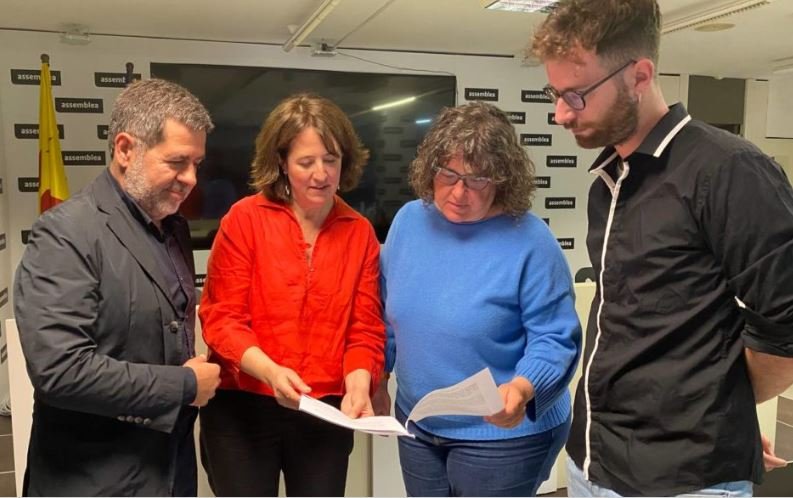The judicial dispersion of Catalangate cases continues. The Catalan National Assembly (ANC) has reported this Friday that the complaint it filed over the espionage using Pegasus software suffered by five of the pro-independence organization's members has finally been admitted by a court: the judge of Barcelona investigative court number 23 accepted the matter for hearing this week on July 26th. The ANC recalls that in May it filed this complaint over violation of the right to privacy and the right to association "through espionage by the Spanish state" against former ANC presidents Elisenda Paluzie and Jordi Sànchez, in addition to three other members, through Pegasus spyware, which was used to hack their mobile devices in the period from 2017 to 2020.
When the Catalangate affair broke in April, revealing Pegasus spyware espionage against more than 60 people linked to the Catalan independence movement, there were initial attempts to centralise the multiple complaints in Barcelona court number 32, the court which since 2020 had been investigating the first case for espionage using Pegasus, against ERC politicians Roger Torrent and Ernest Maragall. However, following the court 32 judge's rejection of the new complaints, a process of dispersion has meant that a total of six different Barcelona courts now have complaints on the table over the espionage against the independence movement: investigative courts number 20, with a complaint by two ERC politicians; court 21, the three from Òmnium; court 22, the three from the CUP party; court 23, the the five from the ANC; court 24, that of the lawyer Andreu van den Eynde; and finally, court 32, with the first complaint by Torrent and Maragall. In addition, a court in Madrid is investigating the espionage suffered by defence lawyer Gonzalo Boye.
The ANC accuses the Spanish state
In a statement, the ANC states that the aim of its complaint is "to find out who is behind these criminal acts". And it adds: "Although the identity of the perpetrators of the acts is unknown, the association's lawyer, Toni Abat i Ninet, understands that the facts and the political interest generated by the complainants indicate that the perpetrators are members of the public authorities of the Spanish state." The Assembly maintains that they could be "members of Spain's National Intelligence Centre (CNI) or some specific division of the state's security forces, such as the National Police or the Civil Guard, who may have had access to this espionage tool".
Abat, when announcing the presentation of the complaint in May, indicated that "the evidence presented showed that Pegasus spyware program had been used" to access conversations, messages, documents and private comments of those affected, and constituted one or more offences of disclosure of secrets and crimes against privacy.
The ANC lawyer added that "the use of an espionage program against members of the public selected for their specific political ideas and for being members of civil society organizations that carry out activities to achieve their legitimate political goals, is an act of an anti-democratic and illegitimate nature and, in addition, involves a flagrant violation of the fundamental right to privacy".
The attacks on the five members
The complaint also denounces the violation of the fundamental right of association. "The use of Pegasus against the complainants for being members of a registered and lawful association, in addition to implying total monitoring and an absolute intrusion into the space of privacy, also implies a violation of Article 22 of the Spanish Constitution". As Abat explained, "everything that is not expressly prohibited by law can be permitted through the right of association".
The Catalan National Assembly details the attacks on the five complainants certified by the CitizenLab group: the last ANC president, Elisenda Paluzie (four attacks and one proven infection, between 2019 and 2020); the president previous to Paluzie, Jordi Sànchez (twenty-six attacks between 2015 and 2017 and 4 proven infections); national secretaries Sònia Urpí (two SMS attacks in 2020 and one proven infection) and Arià Bayé (one SMS attack in 2020), and Jordi Domingo (victim via WhatsApp in 2019), grass roots member of the organization.

